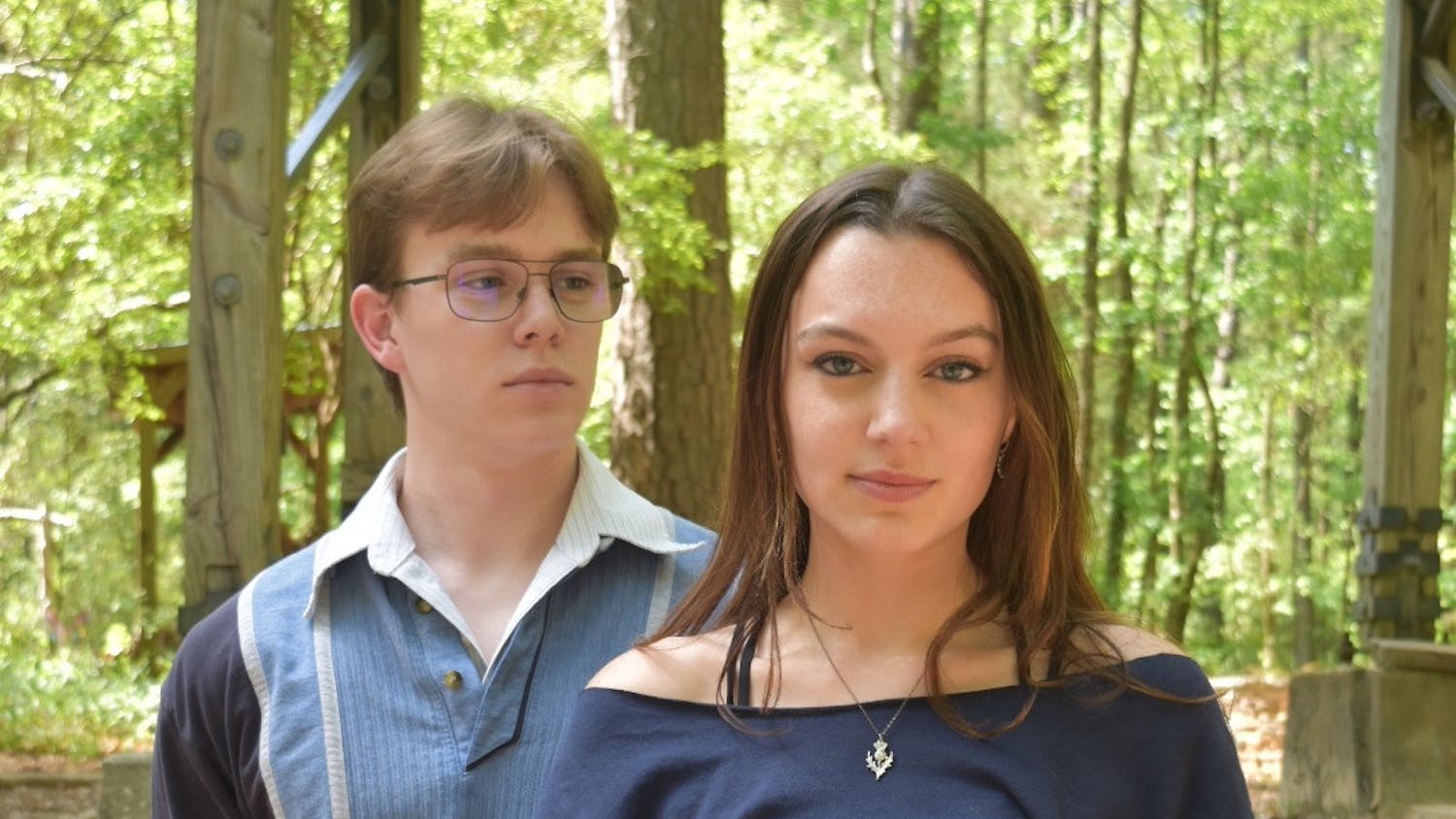Members of the Auburn community took part in worship and conversation to bring different races together through a shared faith in Christianity at the Davis Arboretum on Tuesday evening.
The third-annual Amazing Grace was held the eve of the 50th anniversary of the assassination of Martin Luther King Jr. The event featured a panel discussion from student leaders at the University as well as group worship and small-group discussion.
After a band and choir comprised of members from various local church groups played Christian music for worship, Bri Thomas, SGA executive director of elections, moderated a discussion on the current race climate and strategies of how to move forward.
Black Student Union President John Blanding discussed how it can be difficult being a black individual in a predominantly white community and dealing with micro-aggressions and prejudices.
“Due to my background and my skin color, I am afforded the opportunity to ignore those things, but because of my faith, I’m not ever going to,” said Jacqueline Keck, outgoing SGA president.
Multiple panelists said their bond with someone of another race with a common faith is tighter than the relationship of a non-Christian person of the same race because of their bond with Christ.
“We are family,” said Jay Maye, Auburn student leader, to the crowd. “We’re supposed to be family. Our father gave us life as all of his children. We are a part of his royal priesthood. So, if we can’t come together as family, then we’re going to have some serious questions to answer when we get to the gates.”
Maye told the story of how he was excited to change his reality when he came to Auburn from a predominantly black high school, but he grew resentful when he grew to believe that Auburn self-segregates itself.
“I ended up resenting white people because of the things they were doing to me,” Maye said. “All the biases they were putting toward me, I was putting toward them — I became an unfriendly person… to the point where I became the thing I hated.”
Maye said one day Walker Byrd, then SGA president and organizer of Amazing
After he laid out all the built-up frustration to Byrd, Maye thought he would never hear from him again.
To Maye’s surprise, Byrd asked him to go to lunch again, and they proceeded to get lunch on a regular basis to talk with one another.
Blanding said he gets angered and frustrated when people support racial reconciliation but do not sacrifice the way he and others do.
“I could count on my hands how many of us are actually really working for this and are being pulled in every single direction at all times,” Blanding said. “It angers me sometimes — I’m not going to sugarcoat it — when we create these environments and you guys don’t act on it it feels as though your work is in vain.”
Blanding, along with the rest of the panel, challenged the audience to think about what actions they are going to take to meaningfully create racial reconciliation following the event.
“As we go on a little bit further, I’ll be honest, things may start to be uncomfortable, and that’s okay because they don’t call them growing pains for nothing,” Thomas said. “It’s not easy to grow, and it’s never going to be easy to grow, but that’s not what God wants you to do.”
Before concluding with prayer, those in attendance split into groups of about six or seven to continue the conversation in a small-group setting.
“There were three females, three males, three black people and three white people, so you got a very balanced viewpoint, and everybody spoke quite a bit,” said Grant Reese, senior in political science.
In his small group, Reese encouraged people to seek out a different perspective as he had done by going to Black Student Union meetings as a white male.
He specifically encouraged white people to do so as he said white people have a particularly comfortable situation in Auburn.
“For you to pray through, ‘Lord break my heart for what breaks yours,’ but you’re not going to listen to anything outside your little bubble, you’re not going to do that,” Reese said. “You have to learn about what other people are going through before you take action.”
Byrd, now a staff member of Campus Crusades, said he was pleased with the turnout and how students lingered after the event to continue the dialogue across the fields at the Arboretum.
Byrd liked how the panel portion of the event went as the previous two Amazing Grace events had featured keynote speakers.
“It was even good for my heart to sit and listen to the panel and have a lot of my own stereotypes and biases attacked and to develop empathy for brothers and sisters who don’t look like me,” Byrd said. “That’s something I struggle with a lot just because I have
Do you like this story? The Plainsman doesn't accept money from tuition or student fees, and we don't charge a subscription fee. But you can donate to support The Plainsman.



